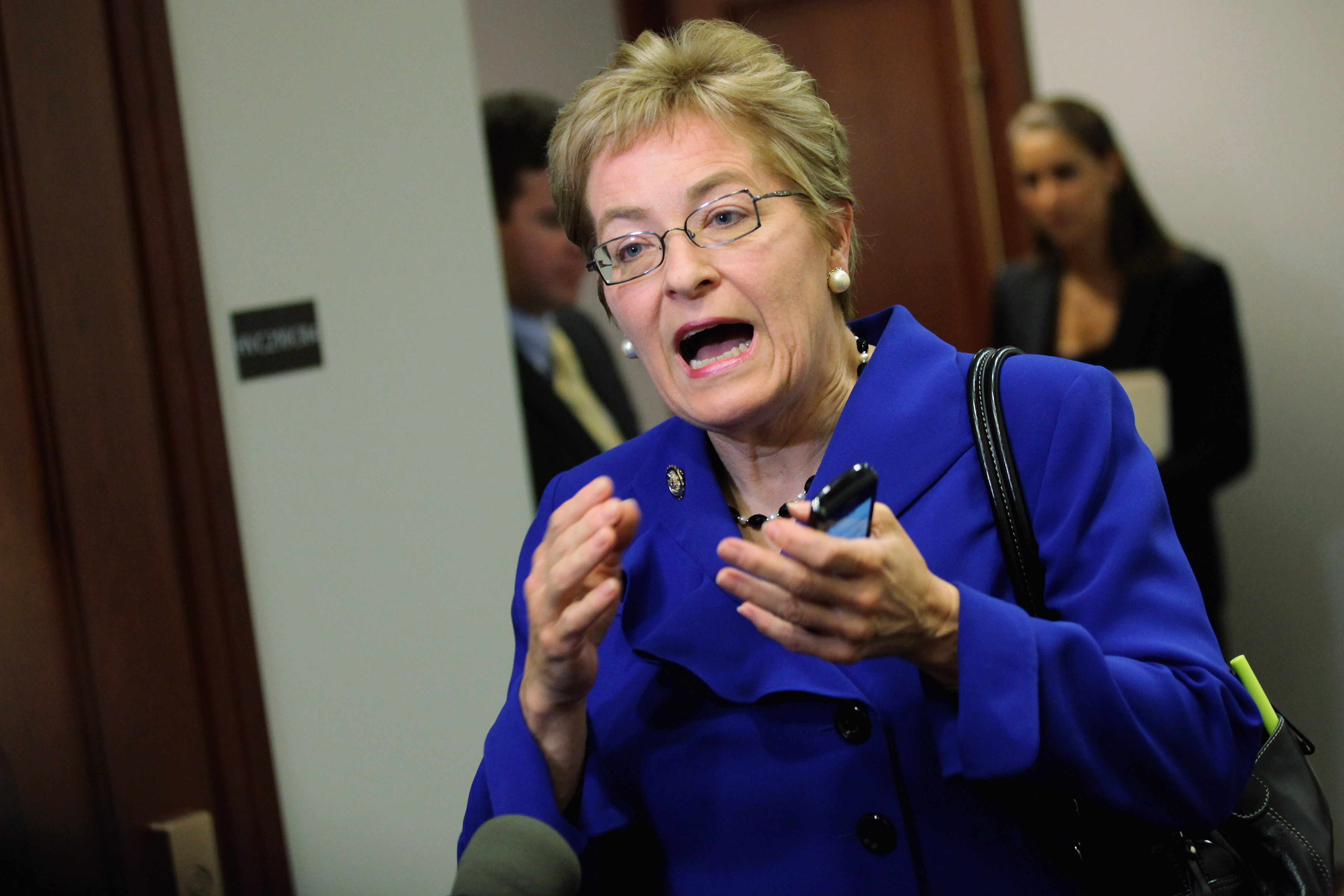America’s public lands are in a sorry state.
Agency budgets are shrinking. Maintenance backlogs are forever growing. Park entrance fees are on the verge of skyrocketing. It’s a dire situation indeed, owed largely to decades of austerity policies in Washington, D.C.—and it’s a situation that the Trump administration seems bent on exacerbating. The White House, with its budget-busting tax bill and miserly fiscal policies, threatens to further reduce public financing and weaken popular support for our country’s national parks, forests, and more.
There are, however, alternative visions of the public domain’s purpose and promise.
For nearly a decade, Representative Marcy Kaptur (D-Ohio), the dean of Ohio’s congressional delegation, has been calling for massive federal investment in America’s public lands and resources. Inspired in part by the New Deal-era Civilian Conservation Corps, she has relentlessly championed the creation of an ambitious publicly funded program that could put millions of under- and unemployed people to work. An urban and regional planner by training, Kaptur wants to restore and rehabilitate the federal domain and, in doing so, transform the public lands into a red-hot engine of job creation.
Kaptur re-introduced her bill, called the 21st Century Civilian Conservation Corps Act, in Congress in April. It calls for as much as $16 billion per year in funding over the next four fiscal years to provide “gainful employment to unemployed and underemployed citizens of the United States through the performance of useful public work, and for other purposes.” The act would enable the president to put millions of people to work re-foresting, combating invasive species, rehabilitating trails on federal lands, and mitigating damage from floods and forest fires, and completing other such projects. Relying on the expertise of agencies like the Department of the Interior, the Department of the Labor, and the Army Corps of Engineers, the program would offer workers food, clothing, transportation, housing, medical care, and money during their time of employment. It would also, according to Kaptur, provide them the experience of a lifetime.
“It would be life changing, it would be perspective changing for people,” Kaptur tells me. “Imagine taking a youngster from Detroit, or someone from Toledo who is unemployed, and giving them an opportunity to do something really great for the country.” Much like the original Civilian Conservation Corps, Kaptur says her bill would create a huge cohort of life-long conservationists who deeply understand and appreciate our public lands.
“I am old enough to have met people who worked in the CCC camps” during the Great Depression, Kaptur adds. “There wasn’t a one that didn’t tell me it was one of the greatest experiences of their life. It changed their lives.”

(Photo: Chip Somodevilla/Getty Images)
Kaptur says the need for such a program is evident by the number of Americans who are currently out of work. The official unemployment rate in this country stands at roughly 6.5 million people—that’s 4.5 percent of the labor force. (The National Jobs for All Coalition, though, estimates the number is, in fact, closer to 16.5 million people—or 10 percent—if you factor in underemployment and those who have dropped out of the labor market altogether.) The congresswoman’s bill couples this destabilizing need for employment with our nation’s desperate need for improved infrastructure and natural resource restoration.
The National Park Service has a roughly $12 billion maintenance backlog. The Forest Service is wrestling with roughly $5 billion in unmet infrastructure needs. There aren’t enough rangers or trail workers on public lands. And the land itself is in need of help. Invasive Asian carp are marching up the Mississippi River, heading straight for the Great Lakes. Spotted knapweed is edging out native flora across the West. Kaptur says that Ohio and other Midwestern states need to re-plant at least 20 million trees after years of arboreal devastation caused by invasive beetle infestations.
“There are a lot of jobs that can be created in this country,” Kaptur says, “tending to our natural and environmental systems.”
It’s plain that Kaptur’s bill stands little chance of passage in the current political climate. But big ideas—from universal health care to free college tuition to well-funded federal lands—have a tendency to resurface. With enough public engagement and organizing, the political climate can change. Perhaps a second Civilian Conservation Corps, and its populist vision for the public lands, is not so far away.




